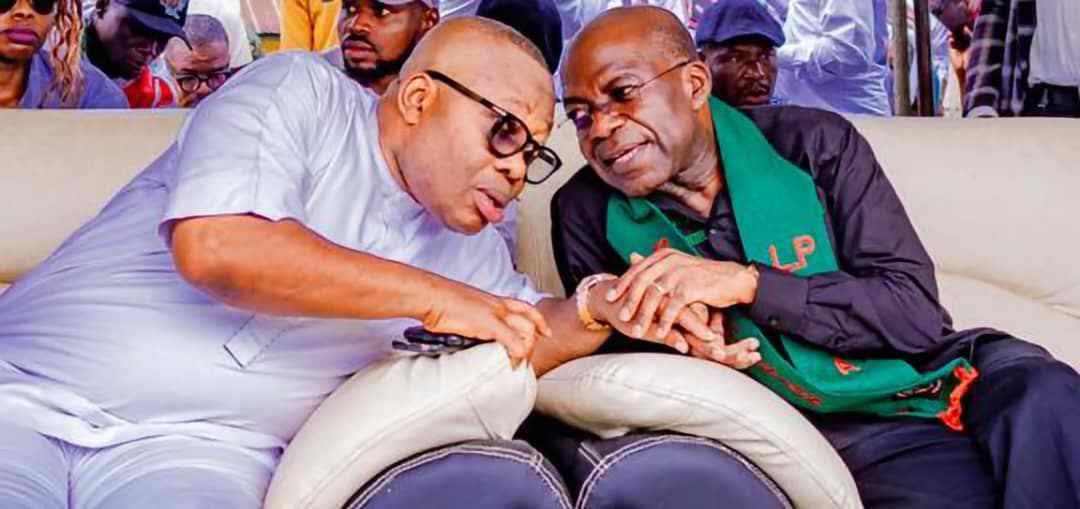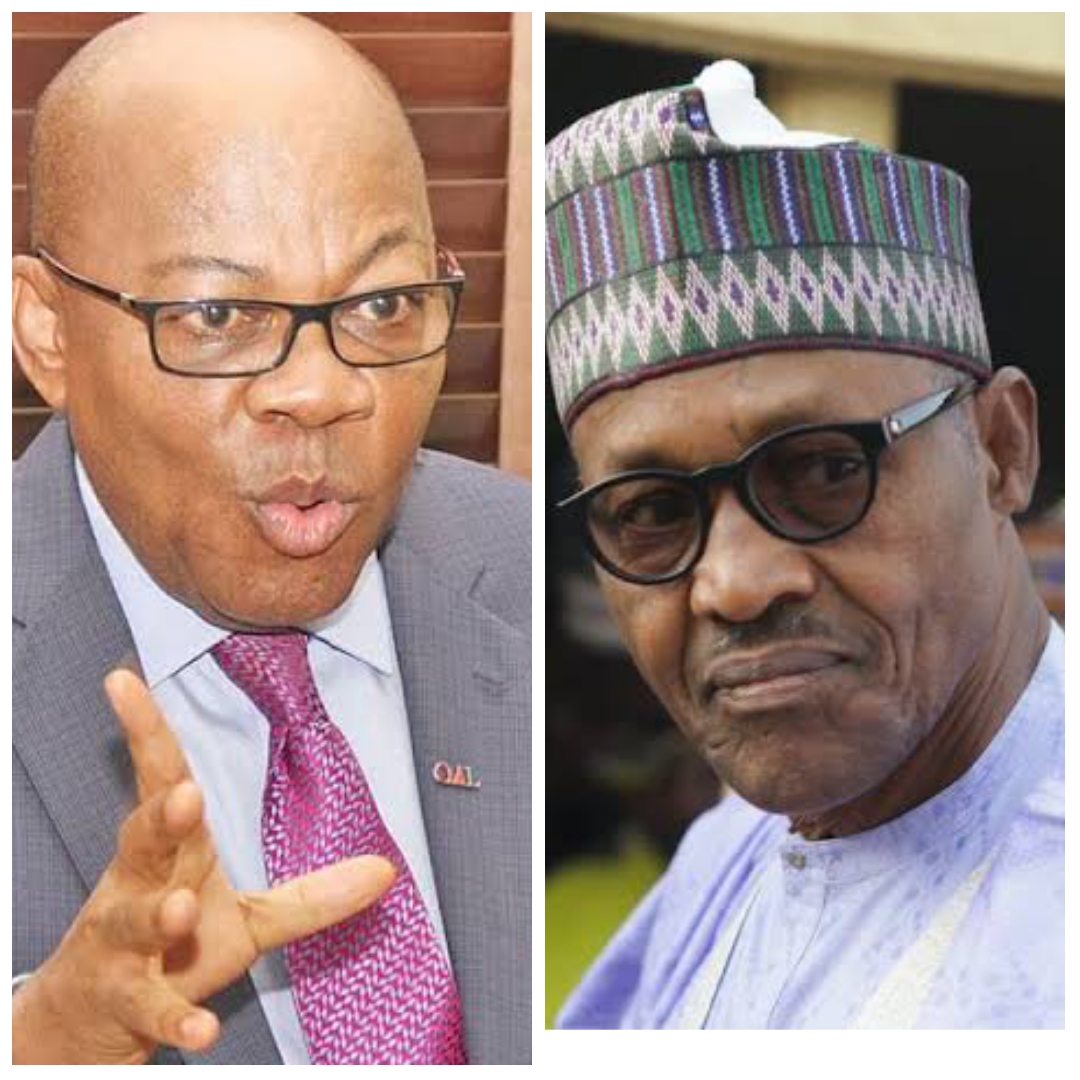Politics
Fresh fear over 2023 polls – Threat of constitutional crisis looms

By OBINNA EZUGWU
Another twist may be coming into play as the nation moves toward the 2023 general elections in February, raising a spectre of anxiety over the outcome. This fresh concern relates to legal provisions covering the elections, which experts say, are landmines that could be deployed by the government to determine the eventual winner.
A presidential race featuring two traditional behemoths, the People’s Democratic Party and the All Progressives Congress (APC), a credible third force in the Labour Party, and perhaps a fourth force that lacks little in confidence, with a sprinkling of arrogance, in the New Nigeria People’s Party (NNPP), Nigeria’s February 25 election has been described as unpredictable, deeply uncertain, and seemingly destined for a runoff.
Yet, as though the scenario is not reason enough to be weary in a potentially volatile polity, a constitutional crisis may also be brewing, with two legal icons raising critical questions about certain provisions of the 1999 constitution and the Electoral Act 2022, as they may affect the eventual outcome, about a month before the electorates head to the polling booths to cast their ballot.
First, and of more critical importance, is the controversy now surrounding section 134 of the constitution, which deals with the status of Abuja, the nation’s capital, in the two-thirds majority states’ equation, as highlighted in a letter to the Independent National Electoral Commission (INEC) by Mr. Olisa Agbakoba, SAN, on January 17.
The other being about the power, as provided for in the Electoral Act, of the electoral body to take final decision on matters of declaration of scores of candidates, rejected votes and unmarked ballot papers, which was raised by Chief Wale Olanipekun, SAN.
On his part, Agbakoba, had in the said letter, which has triggered another round legal fireworks, asked the electoral body’s chairman, Professor Mahmood Yakubu, to clarify, before Nigerians head to the polls, the requirements for winning the presidential election,
particularly as it relates to the federal capital territory, Abuja, as contained on section 134 of the 1999 constitution, to the public.
The former president of the Nigerian Bar Association (NBA), stated that his request for clarification on the provision was premised on the seemingly ambiguous nature of the section even as it concerns electoral processes.
Agbakoba wrote, “I am a little worried. Many concerned Nigerians contacted me about the correct interpretation of section 134 of the 1999 Constitution that provides requirements to be met by a presidential candidate in relation to the office of the President of Nigeria. Section 134 of the 1999 Constitution provides as follows:
“(S1) A candidate for an election to the office of President shall be deemed to have been duly elected, where, there being only two candidates for the election –
“(a) he has the majority of votes cast at the election; and
“(b) he has not less than one-quarter of the votes cast at the election in each of at least two-thirds of all the States in the Federation and the Federal Capital Territory, Abuja.
“I reviewed section 134 carefully, specifically, subsections 134 (1) (b) and (2) (b), and wondered if “two-thirds of all the States in the Federation and the Federal Capital Territory, Abuja” means either of the following:
“a) that a presidential candidate must score not less than one-quarter of the votes cast at the election in each of at least two-thirds of all the States in the Federation, which means 24 states, the 24 States will include the Federal Capital Territory Abuja as a “State”, or
“b) that a presidential candidate must score not less than one-quarter of the votes cast at the election in each of at least two-thirds of all the States in the Federation, which means 24 states and in addition to meeting the one-quarter requirement in 24 states, a candidate must also win one-quarter of the votes cast in the Federal Capital Territory, Abuja.
“In this sense, a presidential candidate must have one-quarter of the votes cast in the Federal Capital Territory, Abuja, in addition to scoring not less than one-quarter of the votes cast at the election in 24 States of the Federation, to be duly elected.
“The above possible interpretations raise three major questions:
“(1) Is the requirement that a presidential candidate must score not less than one-quarter of the votes cast at the election in each of at least two-thirds of the 36 States of the Federation; does this mean that the Federal Capital Territory, Abuja is incorporated in the 24 States? Or,
“(2) is the requirement that a presidential candidate must score not less than one-quarter of the votes cast at the election in each of at least two-thirds of the 36 States of the Federation; does it mean that the presidential candidate must also score not less than one-quarter of the votes cast at the election at the Federal Capital Territory, Abuja?
“(3) can a candidate that scored not less than one-quarter of the votes cast at the election in 24 States of the Federation but fails to score one-quarter of the votes cast at the election at the Federal Capital Territory, be duly elected as President of Nigeria?
(3). “Finally, section 134(1)(a) provides that a candidate for an election to the office of President shall be deemed to have been duly elected, where, there being only two candidates for the election, the candidate has the majority of votes cast at the election, but section 134(2) provides that a candidate for an election to the office of President shall be deemed to have been duly elected where, there being more than two candidates for the election, the candidate has the highest number of votes cast at the election.
The Constitution describes the winner in two different languages. One, the winner must score the majority of votes and the other, the winner must score the highest number of votes. This is confusing.
“To be honest, I am not quite sure of the right answers to my questions. I just thought to bring this to your attention as something you might wish to clarify to the public.”
Nigeria’s presidential contest since 1999, had always featured two leading contenders, thus, there couldn’t have been such scenario where a potential winner of majority votes ran the risk of not meeting the constitutional threshold to be declared winner.
But the 2023 scenario have been likened to the 1979 presidential election, which featured such political heavyweights as Chief Obafemi Awolowo, Dr. Nnamdi Azikiwe, Shehu Shagari, Mallam Aminu Kano, among others; at the end of which Shagari, having secured the majority votes, relied on the somewhat controversial mathematics of two-thirds majority of a state, to cross the finish line.
Like the 1979 event, the 2023 election features leading contenders from each of Nigeria’s major ethnic groups, namely, Atiku Abubakar of the Peoples Democratic Party (PDP), representing the Hausa and Fulani north; Bola Tinubu of the ruling All Progressives Congress (APC), representing the Yoruba in the West, and Mr. Peter Obi of Labour Party, representing the Igbo of the East, not forgetting Kano State strongman and candidate of the NNPP, who is also staking the claim for northern votes.
Yet, unlike the 2023 scenario, the polity has become a lot more fluid than was the case in 1979, and the election is more likely to be determined by a combination of factors, not primarily regional alliance. Besides region and ethnicity, religion is expected to play huge role. But importantly, Nigeria is a country tittering on the brink, with mass poverty, unemployment and unprecedented security challenges, and for many, especially the youth population, it is simply about breaking from past and birthing a new order.
Thus, for Agbakoba, providing clarification about the actual position of the law in this regard, ahead of the presidential poll, is necessary to prevent possible constitutional crisis.
“There are two sets of electoral processes. The first says that if there are two candidates the person who scored the highest with a spread wins. Now, the qualification for the second ballot is different. If the second ballot takes place, the person with simple majority wins,” Agbakoba said, while providing further insight into what prompted him to write the electoral body.
“The first ballot is more difficult. It is targeted at making sure that the person, who is president of Nigeria is enjoying the support of the diversity of Nigerians.
“This is a tough election we’re going into; it is very uncertain. We have, for the first time, a very credible third force. So, when you look at the permutations, you might then say, what if nobody takes the thing at the first shot. So, INEC will have to consider a second ballot, and I’m happy that the chairman of INEC has said the commission is ready to do that.”
Agbakoba’s position, in the final analysis, is that going by the constitution, a presidential candidate must secure 25 percent of Abuja votes, and 25 percent of votes in two-third of the country’s 36 states in order to be declared winner. His position is also supported by other lawyers.
“His (Agbakoba’s) interpretation sits with my own. If you’ve listened to me in all my media interviews and on spaces, I have always refered to 24.5 states – .5 being FCT,” noted, Abdul Mahmud, lawyer, social critic and columnist.
Similarly, Monday Ubani, human rights lawyer, argued that Abuja is not one of the 36 states, and stands alone as the FCT. But he encouraged INEC to make its position clear ahead of the election.
“The law says 36 states, we have 36 states. Abuja is just the federal capital territory. What that particular section is saying is that to be declared winner of the presidential election, you must get 25 percent of Abuja votes,” Ubani told Business Hallmark.
“But INEC should be able to clarify whether Abuja is part of the 25 states because the constitution says two-thirds of 36 states and Abuja.”
Section 65 of Electoral Act dangerous -Olanipekun
In his own concern, Chief Olanipekun, on Wednesday, objected to the provisions of Section 65 of the Electoral Act, noting that it is a dangerous law in the nation’s electoral system, which empowers the Chief Returning Officer of INEC, to return and also review his decision.
Section 65.-(1) and (2) of the Electoral Act provides that, “The decision of the returning officer shall be final on any question arising from or relating to-
(a) unmarked ballot paper;
(b) rejected ballot paper; and
(c) declaration of scores of candidates and the return of a candidate :
“Provided that the Commission shall have the power within seven days to review the declaration and return where the Commission determines that the said declaration and return was not made voluntarily or was made contrary to the provisions of the law, regulations and guidelines, and manual for the election.”
“(2) A decision of the returning officer under subsection (1) may be reviewed by an election tribunal or court of competent jurisdiction in an election petition proceedings under this Act.”
Olanipekun who expressed reservations over the provision when he paid a private visit to Governor Biodun Oyebanji in his office in Ado Ekiti, said, “To me it is a very dangerous section, so novel in the sense that, here you have a Section that empowers a returning officer after returning to review his decision within a period of seven days.
“The returning officer is not a court of law, not a tribunal, not vested with jurisdiction to exercise quasi-decision or to assume jurisdiction over any matter that is judicial in nature.”
“That section of the Electoral Act, [is] giving a returning officer, and by extension, INEC, the power to do and undo.”
The legal luminary pointed out that he is not aware of any similar section in any of any similar section in previous electoral acts, or any similar section in any of the electoral acts of any country in the world.
“When you now invest in a returning officer of INEC, the power to do and undo, the power to return and review his decision is dangerous to the polity,” he said.
“The Chief Returning Officer is the Chairman of INEC, meaning you can return someone as President today, and tomorrow, when there are agitations here and there, he may withdraw his decision, saying “I am revising myself and am now returning somebody else”, he said.
Olanipekun, who said he was so surprised that the National Assembly have to allow that section in the Electoral Act, which they submitted to Mr. President for signing, urged members to remove that proviso and called on all stakeholders, particularly political parties, to “shine their eyes,” to monitor INEC and especially, returning officers, so that nothing untoward happens to any party [and] candidate.
His submission also generated controversy, with many arguing that his fears are unfounded.
“Olanipekun’s conception of Section 65 of the Electoral Act 2022 is wrong. That Section, as Mr. Frank Tietie correctly argues, revolves around administrative discretion and quasi-judicial powers administrative bodies exercise,” argued Mahmud
“His position wreaks violence on legislative intention. To accept his position is to turn any decision on unmarked and rejected ballot papers, declaration of scores and returns to the courts. Section 65(2) EA provides safeguard to unjudicious decisions by way of review.”
Also commenting on Olanipekun’s concerns, Ayo Obe, lawyer and pro democracy activist, noted that the power the section of the act gives INEC is indeed positive, and ought to be welcomed.
“People, who are concerned with electoral matters have actually welcomed that position, and the powers that it gives INEC,” Obe said on Silverbird on Friday.
“We’re at a stage in our electoral process where you cannot just thumbprint ballot papers. It has to be votes cast at polling stations. So, if a polling officer is being harassed or forced to say, after the voting, that well, I counted 12 votes for party A, but because they are threatening me and if I don’t write 60 votes, I may be harmed, INEC is saying, don’t put your life in danger, sign whatever they make you sign, then later, you make a report about what happened that made you sign it.
“It is important to remember that there is a big proviso to that section 65 subsection (1). The proviso is not simply the commission can wake up and declare that a result is invalid. It’s where the commission determines that the result declaration was not made voluntarily, or was made contrary to the provisions of the law or the rules and regulations guiding the elections. So, it’s not subjective. And the party involved has the right to take the matter up, have it reviewed in a tribunal or a court of competent competent jurisdiction.”










